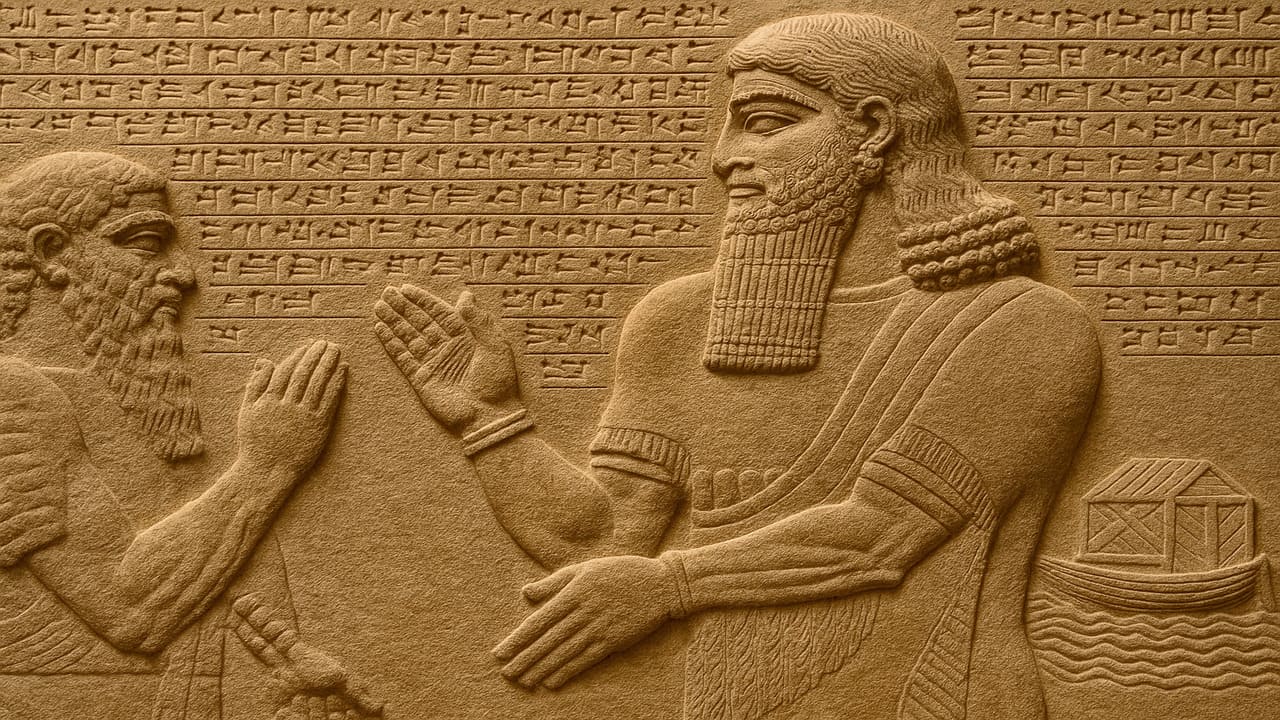
Thorn Ville Church – The Epic of Gilgamesh is widely considered the world’s oldest surviving piece of literature. Composed in ancient Mesopotamia around 2100 BCE, the story was originally passed down orally before being inscribed onto twelve clay tablets in cuneiform script. These tablets, discovered in the ruins of Nineveh and other ancient sites, provide a rare glimpse into the beliefs, fears, and aspirations of early human civilization.
The central character, Gilgamesh, is described as two-thirds divine and one-third human, making him a powerful yet flawed ruler. His adventures serve as both mythological entertainment and moral instruction, offering timeless reflections on themes such as mortality, friendship, and the search for meaning in life. This blend of myth and morality is one reason the epic continues to captivate audiences thousands of years later.
At the heart of the narrative lies the powerful bond between Gilgamesh and Enkidu. Enkidu, created by the gods as a wild man of nature, was meant to challenge Gilgamesh’s arrogance and balance his strength. Their initial confrontation quickly transforms into a deep friendship that becomes one of the epic’s defining features.
Together, the two embark on daring quests, including the slaying of Humbaba, the monstrous guardian of the Cedar Forest. Their joint adventures demonstrate not only courage but also loyalty, emphasizing how human companionship provides strength against both physical and existential challenges. The tragedy that follows, with Enkidu’s untimely death, propels Gilgamesh into a new phase of the story that examines grief, loss, and the human fear of death.
Read More :The Ekron Inscription: First Known Text from the Philistines
One of the most striking episodes within the Epic of Gilgamesh is the tale of the great flood, found on one of the later tablets. In this section, Gilgamesh seeks out Utnapishtim, a man who has been granted immortality by the gods. Utnapishtim recounts his story of survival during a catastrophic deluge that wiped out nearly all of humanity.
According to Utnapishtim, the god Ea warned him of the coming judgment and instructed him to build a massive boat. This vessel would protect him, his family, and the seeds of all living things from the watery destruction unleashed by the gods. After the floodwaters receded, Utnapishtim released birds to test the land’s dryness. Echoing details found later in biblical narratives such as Noah’s Ark. The parallels between these stories highlight the shared mythological heritage of ancient cultures. While also underscoring humanity’s enduring fascination with renewal and survival in the face of divine wrath.
The Epic of Gilgamesh is not just a tale of adventure; it is a profound meditation on mortality. Gilgamesh’s grief over Enkidu’s death drives him to seek eternal life, a quest that ultimately ends in disappointment. Despite finding Utnapishtim and learning the secret of immortality. Gilgamesh fails to hold onto the plant that would have restored his youth, losing it to a serpent.
Through this outcome, the epic suggests that immortality is reserved for the gods. While human beings must accept the inevitability of death. Yet, it also offers a hopeful message: immortality can be achieved symbolically. Through enduring accomplishments, legacy, and the memory of one’s deeds. This lesson remains relevant, resonating with modern readers who grapple with similar existential questions.
The influence of the Epic of Gilgamesh extends far beyond Mesopotamia. The parallels between Utnapishtim’s flood narrative and later flood stories in the Hebrew Bible, Greek mythology, and other traditions demonstrate its impact on global storytelling. The themes of heroic friendship, the inevitability of death, and the pursuit of wisdom continue to inspire writers, poets, and philosophers across cultures.
Moreover, the rediscovery of the tablets in the 19th century redefined modern understanding of world literature. It reminded scholars that ancient societies grappled with the same questions we ask today: What is the meaning of life? How should we face death? And what legacies will we leave behind? These universal questions ensure that Gilgamesh’s story remains as relevant now as it was thousands of years ago.
Also Read : Suspect Arrested After 33-Hour Manhunt in Connection with Charlie Kirk Murder
One of the most intriguing aspects of the Epic of Gilgamesh is that the version we know today may not be complete. Archaeologists and historians suggest that fragments remain missing, leaving open the possibility of future discoveries. New tablets, if uncovered, could shed further light on Gilgamesh’s adventures or expand on themes only hinted at in the existing text.
This possibility excites both scholars and the general public, as each new find adds another layer to humanity’s earliest written masterpiece. The question lingers could buried ruins across Mesopotamia still hold secrets of Gilgamesh’s journey. Waiting to rewrite what we know about the dawn of literature?
This Article About Epic of Gilgamesh Written by: Abra Azhari | Editor: Micheal Halim
Information Source: Crossway.org
Thornville Church - Your Source for Biblical Inspiration - Exploring the oldest places Christian worship offers profound insight into the…
Thornville Church - Your Source for Biblical Inspiration - Thousands of visitors journey each year to historic religious sites believed…
Thornville Church - Your Source for Biblical Inspiration - Long term fitness planning now determines how strong, mobile, and independent…
Thornville Church - Your Source for Biblical Inspiration - Ancient Christian pilgrimage destinations are reshaping ancient christian faith education by…
Thornville Church - Your Source for Biblical Inspiration - Romanesque churches early Europe menunjukkan bagaimana arsitektur batu massif membentuk praktik…
Thornville Church - Your Source for Biblical Inspiration - Archaeological insights book acts increasingly illuminate the historical landscape of the…